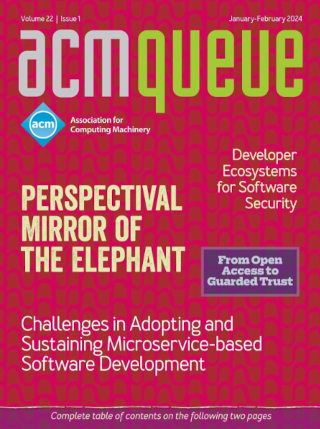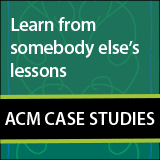
Device Onboarding using FDO and the Untrusted Installer Model:
FDO's untrusted model is contrasted with Wi-Fi Easy Connect to illustrate the advantages of each mechanism.
Automatic onboarding of devices is an important technique to handle the increasing number of "edge" and IoT devices being installed. Onboarding of devices is different from most device-management functions because the device's trust transitions from the factory and supply chain to the target application. To speed the process with automatic onboarding, the trust relationship in the supply chain must be formalized in the device to allow the transition to be automated.
Use Cases are Essential:
Use cases provide a proven method to capture and explain the requirements of a system in a concise and easily understood format.
While the software industry is a fast-paced and exciting world in which new tools, technologies, and techniques are constantly being developed to serve business and society, it is also forgetful. In its haste for fast-forward motion, it is subject to the whims of fashion and can forget or ignore proven solutions to some of the eternal problems that it faces. Use cases, first introduced in 1986 and popularized later, are one of those proven solutions. Ivar Jacobson and Alistair Cockburn, the two primary actors in this domain, are writing this article to describe to a new generation what use cases are and how they serve.
Software Managers' Guide to Operational Excellence:
The secret to being a great engineering leader? Setting up the right checks and balances.
Software engineering managers (or any senior technical leaders) have many responsibilities: the care and feeding of the team, delivering on business outcomes, and keeping the product/system/application up and running and in good order. Each of these areas can benefit from a systematic approach. The one I present here is setting up checks and balances for the team's operational excellence.
Low-code Development Productivity:
"Is winter coming" for code-based technologies?
This article aims to provide new insights on the subject by presenting the results of laboratory experiments carried out with code-based, low-code, and extreme low-code technologies to study differences in productivity. Low-code technologies have clearly shown higher levels of productivity, providing strong arguments for low-code to dominate the software development mainstream in the short/medium term. The article reports the procedure and protocols, results, limitations, and opportunities for future research.
Dear Diary:
On keeping a laboratory notebook
While a debug log is helpful, it's not the same thing as a laboratory notebook. If more computer scientists acted like scientists, we wouldn't have to fight over whether computing is an art or a science.
Improving Testing of Deep-learning Systems:
A combination of differential and mutation testing results in better test data.
We used differential testing to generate test data to improve diversity of data points in the test dataset and then used mutation testing to check the quality of the test data in terms of diversity. Combining differential and mutation testing in this fashion improves mutation score, a test data quality metric, indicating overall improvement in testing effectiveness and quality of the test data when testing deep learning systems.
The Security Jawbreaker:
Access to a system should not imply authority to use it. Enter the principle of complete mediation.
When someone stands at the front door of your home, what are the steps to let them in? If it is a member of the family, they use their house key, unlocking the door using the authority the key confers. For others, a knock at the door or doorbell ring prompts you to make a decision. Once in your home, different individuals have differing authority based on who they are. Family members have access to your whole home. A close friend can roam around unsupervised, with a high level of trust. An appliance repair person is someone you might supervise for the duration of the job to be done. For more sensitive locations in your home, you can lock a few doors, giving you further assurance. Making these decisions is an implicit form of evaluating risk tolerance, or your willingness to accept the chance that something might go against your best interests.





